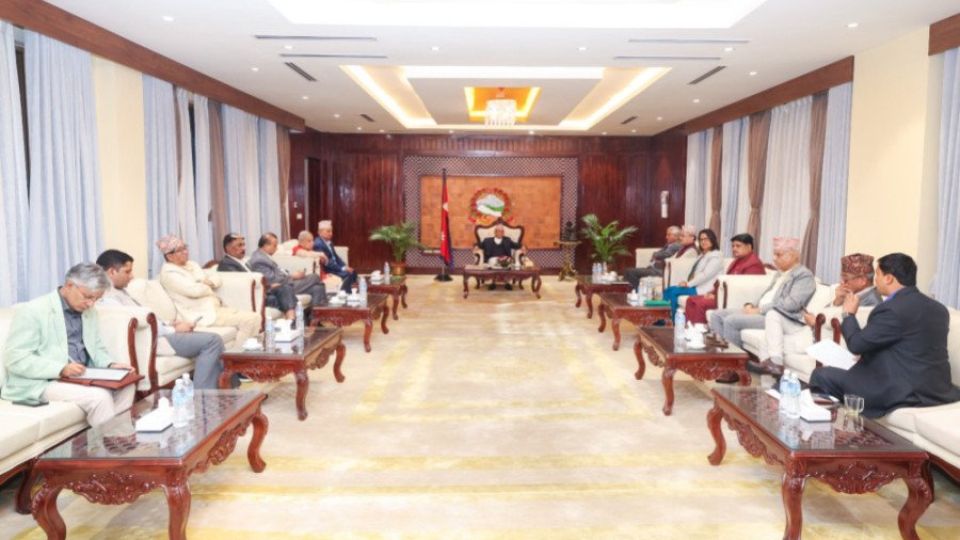September 10, 2024
KATHMANDU – The parties in the ruling coalition have agreed to hold extensive discussions with regard to making amendments in the constitution in line with the seven-point agreement reached between the Nepali Congress and CPN-UML on July 1.
The Congress-UML agreement outlined that amendments would only proceed after consulting key political parties and stakeholders.
At a meeting held at the prime minister’s official residence in Baluwatar on Monday evening, leaders from the ruling alliance, including those who supported the coalition without joining the Cabinet, emphasised the need for accommodating all the sides in the constitution amendment process.
Ranjita Shrestha, chairperson of Nagarik Unmukti Party, said that the parties in the ruling alliance agreed to take any definite move only after consulting all the political forces.
“There was consensus to hold comprehensive discussions with all parties regarding the amendments. The meeting focused on reaching a conclusion only after understanding viewpoints from all the sides,” she said. “Many groups were dissatisfied when the constitution was enacted, and there’s an emphasis on addressing these concerns to improve it.”
The leaders also discussed the ways to improve the government functioning amidst growing criticism from opposition parties, particularly the CPN (Maoist Centre) and the Rastriya Swatantra Party.
“There was a focus on how to improve government delivery and how the ruling coalition can move forward with a unified stance,” Mahesh Kumar Bartaula, chief whip of ruling UML, said. He added that the government’s common minimum programme would be based on the seven-point agreement made at the time of government formation.
Bartaula shared that there will be weekly meetings among the ruling parties to ensure smooth coordination and progress in the governance and coalition.
Earlier on Sunday, the ruling parties formed a four-member taskforce to draft the common minimum programme of the coalition government.
Leaders from the two parties including Prime Minister KP Sharma Oli and Congress President Sher Bahadur Deuba at a meeting at the prime minister’s official residence in Baluwatar to form the taskforce to outline the policies and programmes to guide the government functioning.
Party general secretary Gagan Thapa and spokesperson Prakash Sharan Mahat from Nepali Congress; and deputy general secretaries Pradeep Gyawali and Bishnu Rimal from the UML are in the taskforce.


